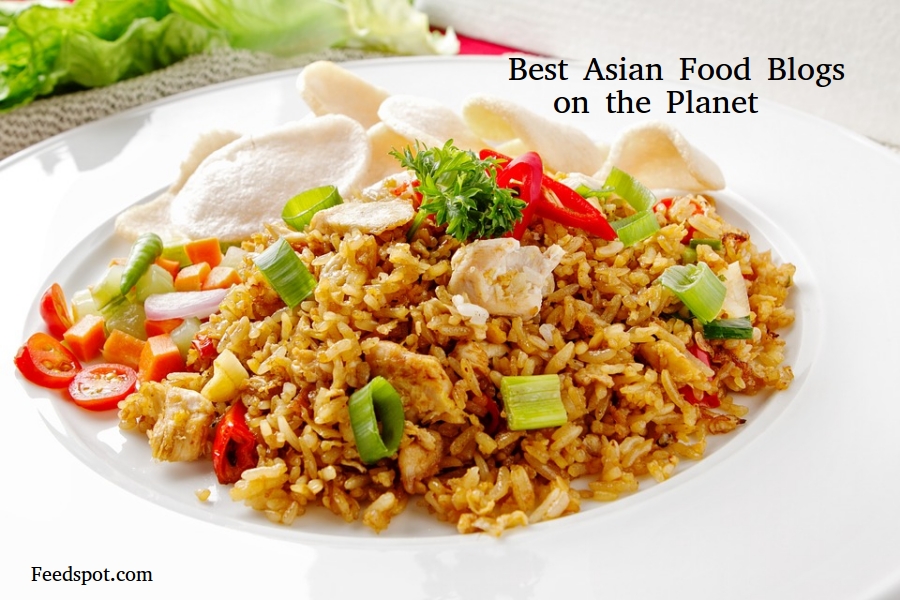Best Asian Food Blogs: Your Guide to Authentic Flavors and Recipes
Asian cuisine is a diverse and rich tapestry of flavors, techniques, and ingredients. Whether you’re craving the bold spices of Indian food, the fresh and vibrant dishes from Thailand, or the savory depth of Japanese cooking, there’s an Asian food blog out there to inspire your culinary journey. Here are some of the best Asian food blogs that will introduce you to incredible dishes, cooking tips, and even the culture behind the food.

1. The Woks of Life: A Family Affair for Authentic Chinese Cooking
If you’re looking for authentic Chinese recipes, The Woks of Life is a must-follow blog. Created by a family of four, this blog is packed with tried-and-tested recipes for traditional and modern Chinese dishes. From homemade dumplings to classic stir-fries, their step-by-step instructions are easy to follow, making Chinese cooking accessible to anyone.
Why You Should Follow:
-
Authenticity: The blog emphasizes using fresh, real ingredients.
-
Cultural Insights: Each recipe is accompanied by insights into the cultural significance of the dish.
-
Easy-to-Follow Recipes: Clear instructions and beautiful photography.
For more Chinese food inspiration, explore their recipe collection.
2. Ang Sarap: A Taste of Filipino Delights
For an exploration of Filipino cuisine, Ang Sarap is one of the top blogs to check out. Written by Raymund, a Filipino who now lives in New Zealand, this blog showcases the best of Filipino comfort food, from Adobo to Sinigang. His recipes offer easy-to-follow steps and give insight into the history and evolution of each dish.
Why You Should Follow:
-
Traditional and Modern Recipes: Blending classic Filipino flavors with modern twists.
-
Detailed Instructions: Raymund offers clear, concise instructions that are beginner-friendly.
-
Cultural Exploration: Each recipe gives you a glimpse into the Filipino culture.
Check out some of his incredible dishes on Ang Sarap.

3. Rasa Malaysia: A Gateway to Malaysian Cooking
Rasa Malaysia is the go-to blog for anyone interested in the rich and varied cuisine of Malaysia. Whether it’s the spicy laksa, satay, or a nasi lemak, this blog offers a wide range of recipes that are simple to prepare yet bursting with flavor. The founder, Bee Yinn Low, brings Malaysian home cooking to your kitchen with clear instructions and beautiful visuals.
Why You Should Follow:
-
Wide Range of Dishes: From appetizers to desserts, there’s something for every occasion.
-
Cultural Focus: Each recipe highlights the unique flavors and ingredients of Malaysian food.
-
Accessible Ingredients: Bee provides alternatives to hard-to-find ingredients for easy home cooking.
To explore more, visit Rasa Malaysia.
4. Noob Cook: Easy and Tasty Asian Recipes for Beginners
If you’re new to cooking Asian dishes, Noob Cook is the perfect blog for you. The blog, run by Wiffy, is aimed at beginners, with easy-to-follow recipes for popular Asian dishes like Singaporean Hainanese Chicken Rice, Chinese steamed buns, and many more. Wiffy ensures that the ingredients used are commonly found in most grocery stores.
Why You Should Follow:
-
Beginner-Friendly: Simple recipes with detailed instructions.
-
Quick and Easy: Perfect for busy people who still want to enjoy homemade Asian meals.
-
Vibrant Photos: Beautiful food photography that makes you want to try the recipes.
For a quick recipe fix, check out Noob Cook.
5. Eat, Little Bird: Elegant French and Asian Fusion
Eat, Little Bird is a food blog that blends French cooking with the delicate and intricate flavors of Asian cuisine. The recipes on this blog explore the intersection of French and Asian culinary techniques, offering a unique perspective on food. From Vietnamese Pho to French-style pastries, the blog gives you innovative ways to elevate your cooking.
Why You Should Follow:
-
Fusion Cuisine: An exciting mix of French and Asian culinary traditions.
-
Elegant Dishes: Recipes that are both delicious and visually stunning.
-
Personalized Tips: The blog shares helpful tips for home cooks to master the techniques.
Discover fusion cooking at Eat, Little Bird.

6. The Spruce Eats: Comprehensive Asian Recipes Collection
While not exclusively focused on Asian cuisine, The Spruce Eats has an extensive collection of Asian recipes that span multiple countries. Whether you’re looking for Japanese sushi, Korean BBQ, or a Thai curry, their curated recipes are easy to follow and suitable for cooks of all skill levels. They also provide tips on ingredient substitutions and helpful cooking techniques.
Why You Should Follow:
-
Broad Selection: Features recipes from all over Asia.
-
Practical Advice: Tips for beginner and advanced cooks alike.
-
Helpful Cooking Techniques: The site covers everything from ingredient prep to plating.
Find your next Asian recipe on The Spruce Eats.
7. Asian Food Network: A Digital Food Hub for All Things Asian
Asian Food Network offers a wide variety of recipes from across the continent. With a focus on popular dishes from China, Japan, Korea, and India, this platform provides not only recipes but also food-related articles and videos. Their mission is to make Asian cooking accessible to everyone.
Why You Should Follow:
-
Comprehensive Coverage: Covers nearly all types of Asian food from various regions.
-
Interactive Content: Features cooking videos and step-by-step guides.
-
Culinary Exploration: Learn about different cooking styles and traditions.
Visit Asian Food Network for more.
Conclusion
Asian food blogs are an incredible resource for both seasoned cooks and beginners alike. They offer a wealth of knowledge, from authentic recipes to culinary tips and cultural insights. Whether you’re interested in Chinese, Filipino, Malaysian, or any other Asian cuisine, these blogs will help you explore the diverse world of Asian food. Start cooking today and experience the vibrant flavors of Asia right in your kitchen!
FAQs
Q1: What are the best ingredients for making Asian dishes at home?
A1: The essential ingredients for Asian cooking often include soy sauce, fish sauce, rice vinegar, ginger, garlic, chili paste, and a variety of fresh herbs like cilantro and basil. You can usually find these ingredients in local Asian grocery stores.
Q2: Can I make Asian food without special tools like woks or bamboo steamers?
A2: Yes! While a wok and bamboo steamer can enhance your cooking experience, many recipes can be made with basic kitchen tools like a frying pan or pot. Most blogs offer substitutions or tips for making do without special tools.
Q3: Are there any quick Asian recipes for busy weekdays?
A3: Absolutely! Many blogs, such as Noob Cook, offer quick and simple recipes that can be made in under 30 minutes. Look for stir-fries, noodle dishes, and rice bowls that come together with minimal effort.
Feel free to explore these amazing blogs and elevate your cooking with authentic Asian flavors. With the right tools, a little guidance, and a pinch of creativity, anyone can master the art of Asian cooking at home.




